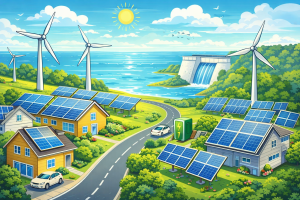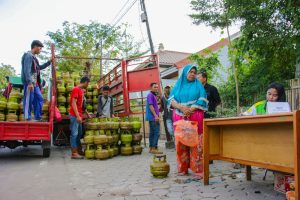Jakarta—Practitioners consider the potential of carbon capture and storage (CCS) technology in Indonesia to be unable to run optimally without legal certainty regarding cross-border carbon storage. This emerged during the panel discussion Plenary Session: CCS for Upstream Decarbonisation and Beyond, held at the 49th IPA Convention & Exhibition on Wednesday, 21 May.
Daniel Fletcher, Head of CCUS Business Development at BP, said that Indonesia’s geological potential is very supportive of CCS development. However, according to him, the success of CCS projects is not only determined by the availability of reservoirs or technical infrastructure but also by a clear legal and regulatory foundation.
Fletcher said legal certainty would be an essential trigger for private investment and support from global financial institutions for CCS projects in Indonesia.
CCS projects start, but incentives are still lacking
Ariana Soemanto, Director of Upstream Oil and Gas Business Program Development at the Ministry of Energy and Mineral Resources, acknowledged that significant investments in the upstream oil and gas sector in the future cannot be separated from the application of CCS. According to her, global decarbonisation efforts make this technology a prerequisite for the sustainability of the oil and gas business.
“So far, oil and gas have had a big multiplier effect on the economy. But in the future, we must be ready to enter the CCS era, which requires equally large investments,” said Ariana.
She mentioned several CCS projects that have been or are currently underway, including the CCS project in Sukowati Field (Pertamina), Sunda Asri project (Pertamina-ExxonMobil), Masela Block (Inpex Masela Ltd.), Sakakemang Block (Repsol), Tangguh Block (bp), which has even reached Final Investment Decision (FID) with an additional investment value of USD 7 billion.
Ariana said that industry players have submitted three stand-alone CCS projects to the Ministry of Energy and Mineral Resources and are awaiting approval. She said three stand-alone projects have been proposed to the ministry.
Regulations exist, but are still limited
Indonesia already has a legal basis through MEMR decree No. 2 of 2023 that regulates the implementation of CCS and CCUS in the upstream oil and gas sector. This regulation covers the process of safely and permanently capturing, transporting, and storing carbon.
However, the regulation has not touched the issue of cross-border storage – the storage of carbon from other countries in Indonesian territory, which could open up greater business opportunities and strengthen Indonesia’s role as a CCS hub in the region.
CCS is not just a climate change mitigation tool, but also a new economic opportunity for Indonesia. The carbon storage potential in unproductive oil and gas reservoirs can be used to absorb carbon emissions from other countries in exchange for investment and economic incentives. (Hartatik)
Banner photo: Image generated by OpenAI’s DALL·E via ChatGPT (2024)















